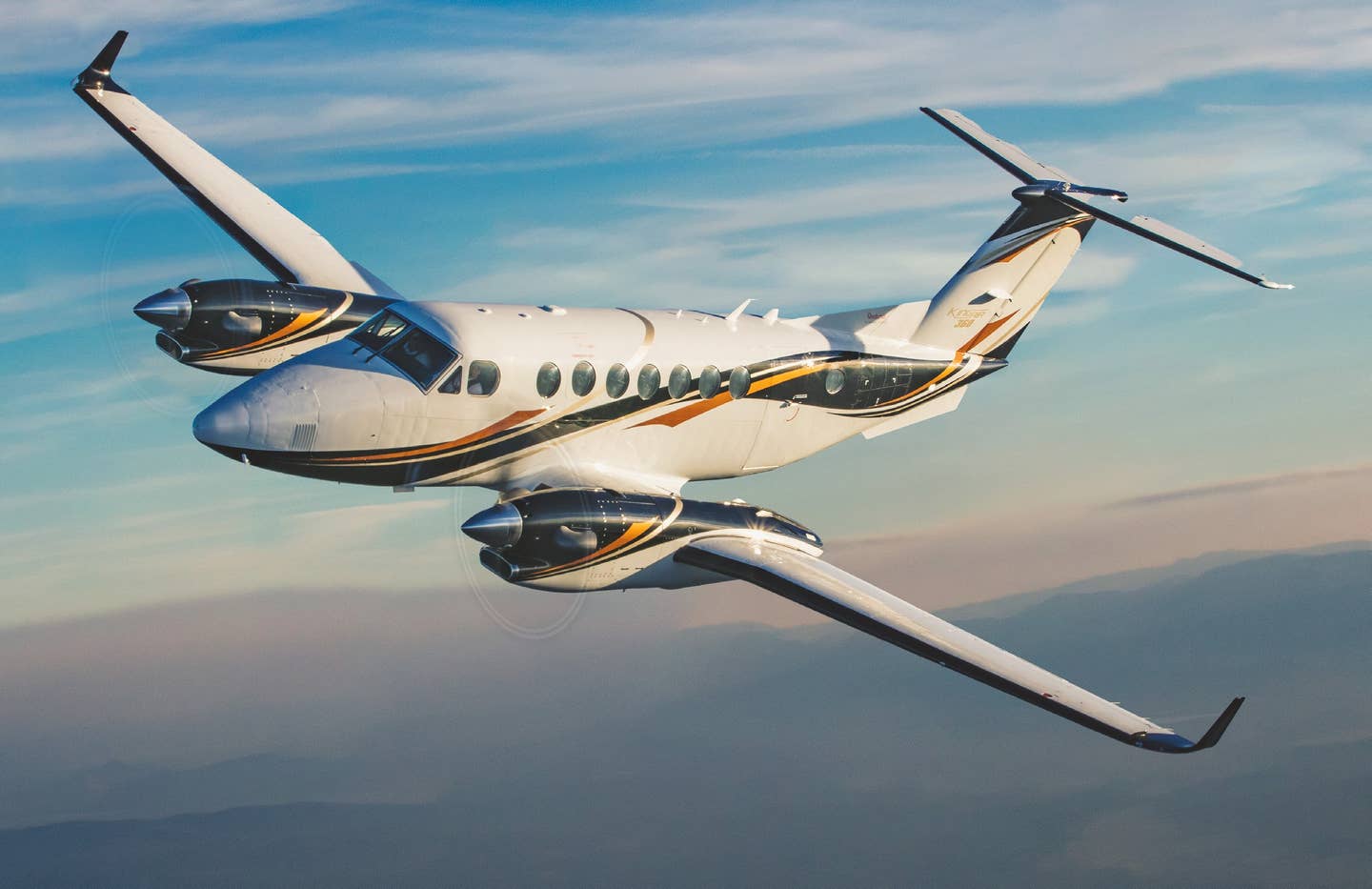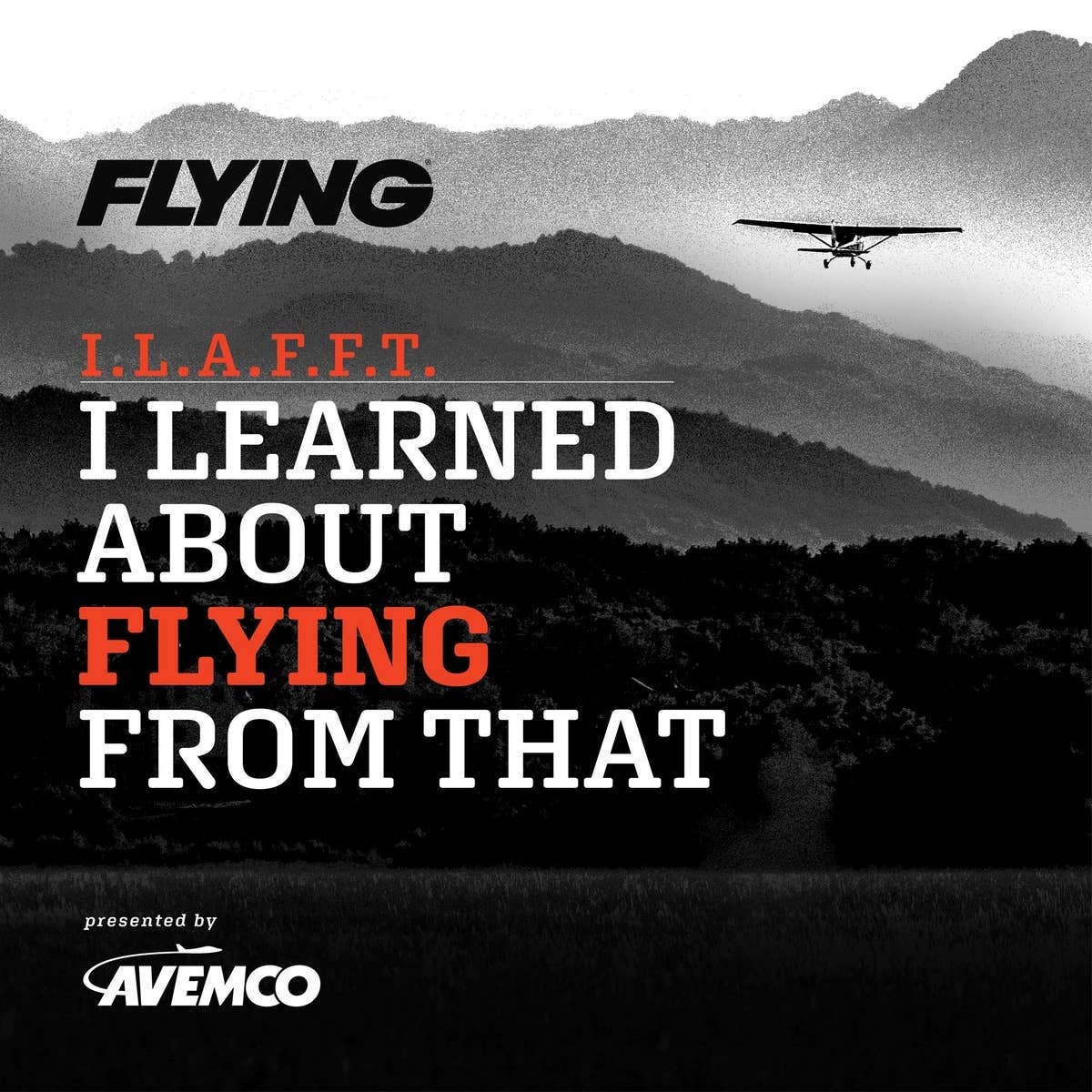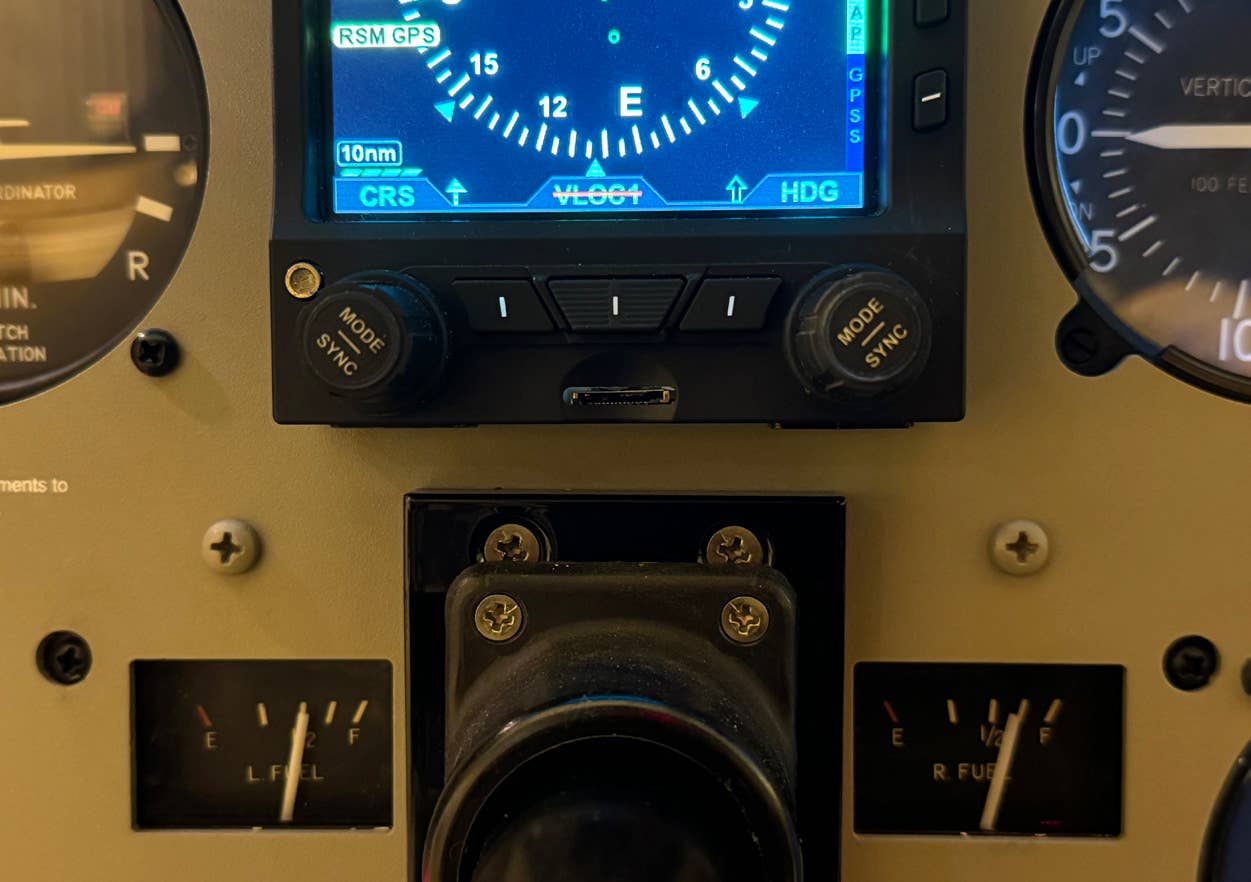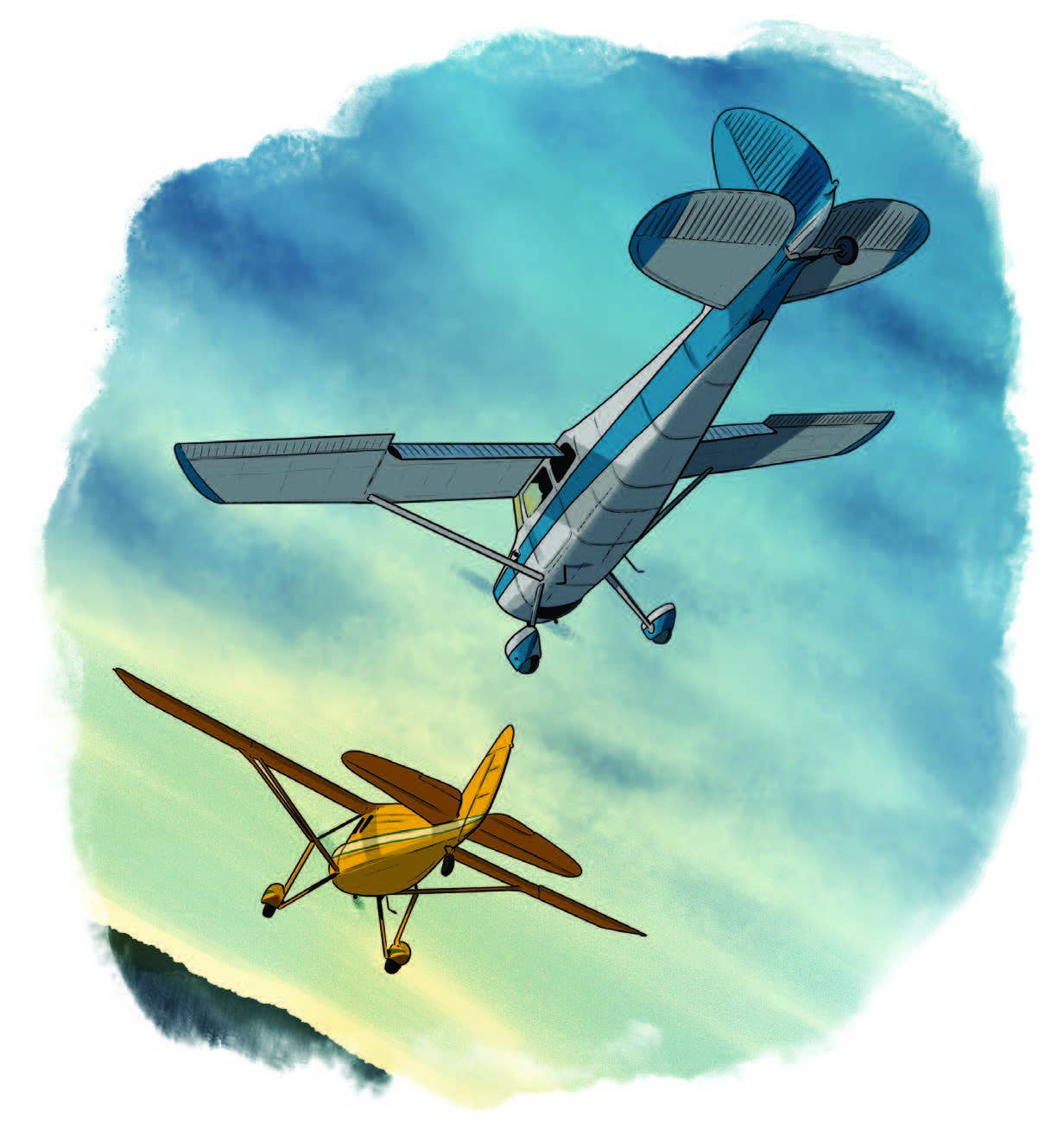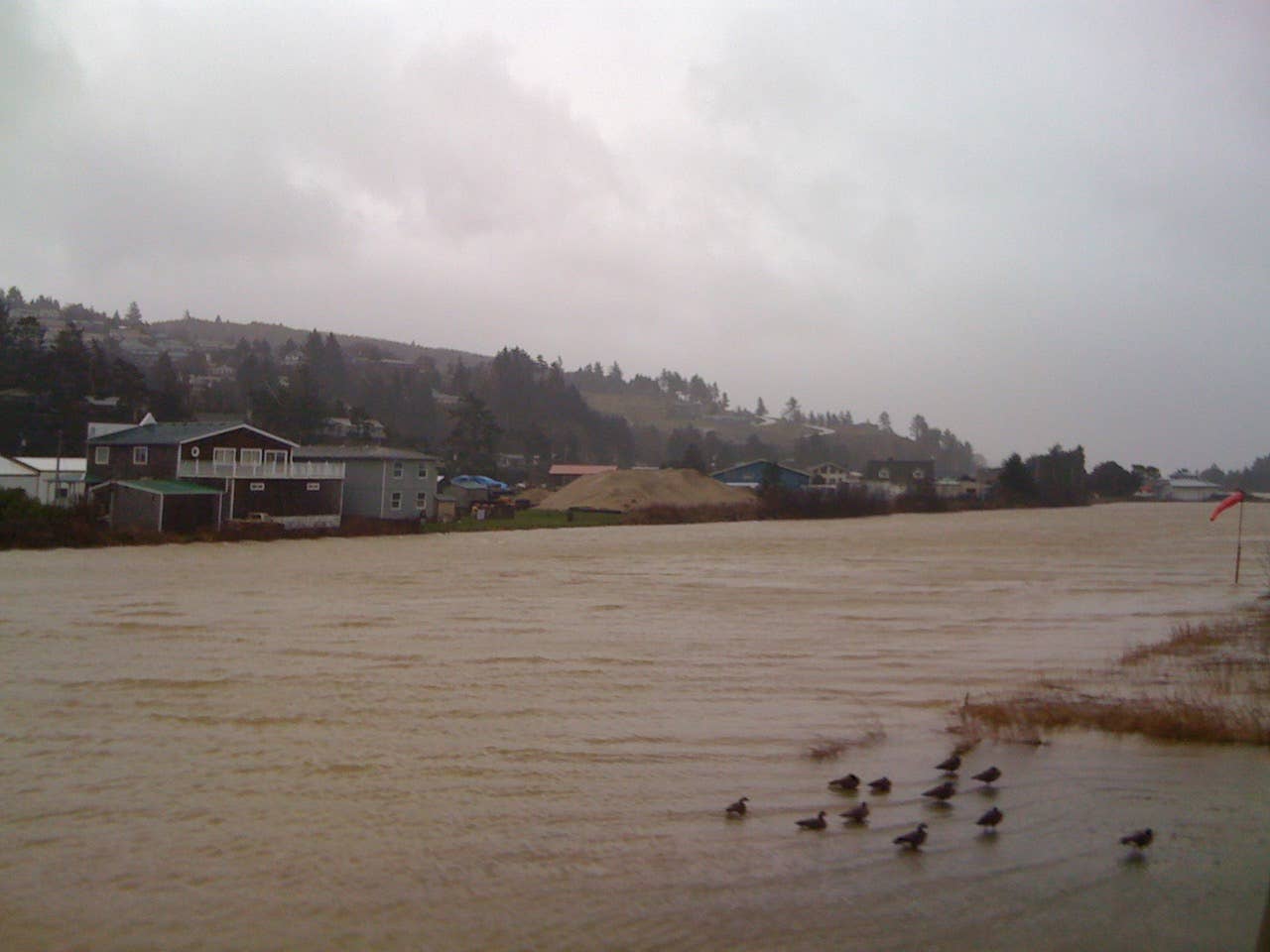
To see more of Barry Ross’ aviation art, go to
barryrossart.com.
Through the magic of the Internet, I learned an important lesson recently about a flight that I piloted 40 years ago this month.
I was a lucky kid who grew up around small airplanes. My father, a physician, had a 90 hp Cub on floats that he kept on the St. Lawrence River in front of our house in Montreal. I don't remember the first time I flew with him, but family lore has it that I tapped my dad on the shoulder after takeoff to let him know the propeller had fallen off, because I could no longer see it. I wasn't worried at all, though, because I had complete trust in my father as the pilot of this amazing machine, and I was too young to understand how important his skill and judgment really were to the outcome of every flight.
My brothers and I flew a lot with my dad in the coming years. As our family grew he owned a Cessna 180 on floats (on skis in the winter) and a Bonanza. As the eldest child, I got to sit in the front seat and soak up everything I could about what it took to be a good pilot. I started to see that one couldn't be a good pilot without good judgment. How much fuel would be enough? How much load could we carry? Were the ceiling and visibility good enough to fly this route on this day?
In early high school my most interesting reading material was the Canadian Department of Transportation aviation accident reports. Again, they seemed more often to be reports about judgment than about stick and rudder skills. The only thing I didn't like about the detailed reports was how repetitive they were. How many hundreds of cases would I have to read about people flying VFR into bad weather, crashing and dying? I wasn't old enough to be a pilot yet, but I thought I understood the danger of VFR into IMC, and I wondered what could possibly have been going through the minds of those pilots as the weather got worse and worse and they just kept pressing on to their ultimate demise.
A few years later I learned exactly what was going through their minds. I was 17 years old with the ink still wet on my private pilot's license. With fully 29 hours accumulated on my own since I got my license, it seemed like a good idea to rent a Cessna 172 and fly from Ottawa International Airport to Ithaca, New York, to visit my cousin who was playing in a football game at Cornell.
This would be my first flight to the United States as pilot in command, but I had traveled extensively throughout the Lower 48 with my dad when I was a young teenager. It seemed more often than not we ended up leaving the family airplane stranded in some far-off U.S. location. As an orthopedic surgeon and head of the accident service (emergency room) at Montreal's largest hospital, my father could have been exceptionally prone to get-home-itis. His answer was to take any mechanical or weather obstacle as an opportunity to turn one adventure into two. We would jump on an airliner and be back in Canada in plenty of time for him to be at work. The bonus was that we then had another trip to look forward to when we would go and retrieve the plane. This was a good lesson for me as a young copilot: Not getting there is more than half the fun! It was the aviation equivalent of "when life throws you lemons, make lemonade."
So, here I was about to set off to Ithaca, New York, knowing that any go/no-go decisions were mine and mine alone. Being able to take trips like this was why I so loved being a pilot. I was in my last year of high school and there was no shortage of people who wanted to come along for the ride. I offered one seat to a classmate and another to my math teacher. Off we went on Oct. 11, 1974. Our first stop was Watertown, New York, to clear customs, and then on to Ithaca. Only a few hours after we left Ottawa we were on the campus of a prestigious university in a foreign country with our private airplane waiting for us at the airport. How cool was that for a 17-year-old pilot? And what would it mean to his ego if he couldn't finish what he started?
Checking the weather for our return the next day, I found that we could probably make Watertown safely and legally VFR, but north of that all bets were off. I told my passengers we would land in Watertown regardless of the weather and check again because it didn't look good on the Canadian side of the border. We did, and it didn't. Still, as long as I remained in VFR conditions and promised myself I'd return to clear skies if things got really bad, we had nothing to lose by checking it out.
Airborne, I had all of the accumulated wisdom of those accident reports I'd read as a youngster and the experience gained as copilot to my father in my head. But I had other thoughts too. What would kids at school say if they heard their math teacher and classmate were stranded somewhere because "Wilson couldn't handle it"? It was pretty cool that he was one of the youngest pilots in Canada, but was he really much of a pilot at all if he couldn't fly on a cloudy day?
I pressed on across the eastern edge of Lake Ontario. When the visibility got so bad that I needed some kind of linear feature to follow, I turned west, following the shoreline to Kingston, where we landed. The whole flight took half an hour. Safely on the ground, I didn't know what my passengers thought of this failure on my part.
Now I know. A friend recently looked up our old math teacher online, making contact for the first time since we graduated that year. He had long ago returned to his native Grenada, where he had a career as a university professor and member of Parliament. He wrote back:
I have indelible memories of [a number of students], particularly Peter Wilson who I once allowed to pilot me in a small Cessna plane to visit a friend of mine who was teaching at Cornell University at the time. On our way back to Ottawa, we ran into a most severe weather system, almost like the arctic vortex which plagued the whole of Canada this year. After being battered about for nearly half an hour in the skies, Peter had the presence of mind to head for and land in Kingston, and we took the train back to Ottawa. An unforgettable experience which I will one day celebrate with Peter for his manifestly sound judgement, thereby ensuring that his teacher has lived to recount this episode.
I learned from that email that if you're a pilot faced with a judgment call that you think may make you look weak or incompetent, think again. People may thank you for it for the rest of their lives.
Get online content like this delivered straight to your inbox by signing up for our free enewsletter.
We welcome your comments on flyingmag.com. In order to maintain a respectful environment, we ask that all comments be on-topic, respectful and spam-free. All comments made here are public and may be republished by Flying.

Sign-up for newsletters & special offers!
Get the latest FLYING stories & special offers delivered directly to your inbox

